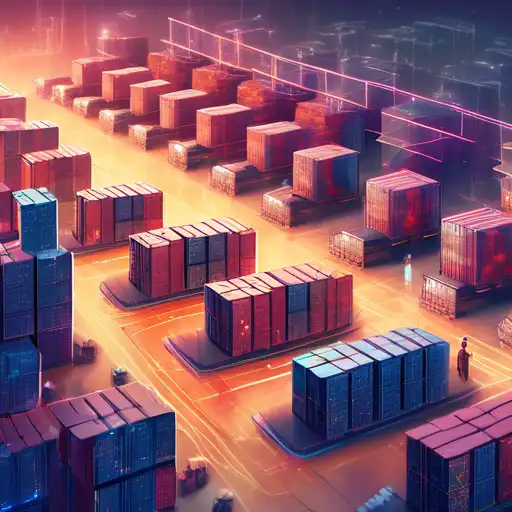Introduction to Blockchain in Supply Chains
Blockchain technology is setting a new standard for transparency, efficiency, and security in supply chains across the globe. By enabling a decentralized and immutable ledger for transactions, blockchain is revolutionizing how products are tracked, verified, and delivered from manufacturers to consumers.
The Core Benefits of Blockchain for Supply Chains
Blockchain offers several key advantages that are transforming supply chain management:
- Enhanced Transparency: Every transaction or movement of goods is recorded on a blockchain, providing a transparent and unalterable history.
- Improved Security: The decentralized nature of blockchain reduces the risk of fraud and unauthorized alterations to the supply chain data.
- Increased Efficiency: Smart contracts automate processes, reducing paperwork and speeding up transactions.
- Better Traceability: Products can be tracked from origin to consumer, ensuring authenticity and compliance with regulations.
Real-World Applications of Blockchain in Supply Chains
Several industries are already leveraging blockchain to enhance their supply chains:
- Food Safety: Companies are using blockchain to track the journey of food products, significantly reducing the time it takes to trace contamination sources.
- Pharmaceuticals: Blockchain ensures the authenticity of drugs by tracking their production and distribution, combating counterfeit medications.
- Retail: Luxury goods retailers are adopting blockchain to verify the authenticity of their products and assure customers of their purchases' genuineness.
Challenges and Considerations
Despite its potential, blockchain implementation in supply chains faces hurdles:
- Integration Complexity: Merging blockchain with existing supply chain systems can be technically challenging.
- Regulatory Uncertainty: The lack of standardized regulations across jurisdictions can complicate blockchain adoption.
- Cost: Initial setup and transition to blockchain-based systems can be costly for some businesses.
Future Outlook
As blockchain technology matures, its adoption in supply chains is expected to grow, driven by the demand for greater transparency, security, and efficiency. Innovations in blockchain scalability and interoperability will further enhance its applicability across diverse supply chain scenarios.
For businesses looking to stay competitive, exploring blockchain integration into their supply chains is not just an option but a necessity in the digital age. The journey towards blockchain-enabled supply chains is just beginning, and its full potential is yet to be realized.
Discover more about digital transformation in supply chains and how it's shaping the future of global trade.
